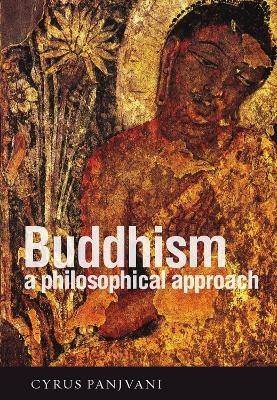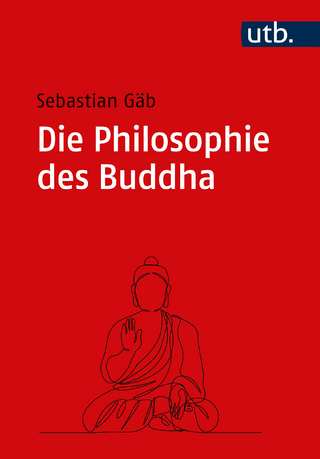
Buddhism
Broadview Press Ltd (Verlag)
978-1-55111-853-6 (ISBN)
Cyrus Panjvani is Associate Professor of Philosophy at MacEwan University.
Preface
I Indian Contexts
General Themes of the Indian Philosophical Tradition
A Short Account of the Vedas and Upanishads
The Philosophy of the Upanishads
The Identity of Brahman and Atman
II The Legend and Life of the Buddha
Introduction
The Early Life
The Four Signs
Renunciation
III Reading the Middle Way
Steering the Middle Course
A Symbolic Reading
Concluding Remarks
IV The First Noble Truth: Three Understandings of Suffering
Introduction
Pervasiveness and Eliminability
The First Understanding
The Second Understanding
The Third Understanding
The Five Aggregates
The Buddha and David Hume
Concluding Remarks
V The Second Noble Truth: An Analysis of Craving
Introduction
Craving and Permanence
Craving and Wanting — A Difference in Kind
The Character of Craving — Qualitative Observations
The Character of Craving — Formal Observations
Criticism of Bahm
Self and Suffering
VI The Third Noble Truth: Nirvana, the Cessation of Suffering
Introduction
Samsara
Understanding and Describing Nirvana
VII The Fourth Noble Truth: Walking the Noble Eightfold Path
Introduction
The Noble Eightfold Path
More on Mindfulness
VIII The Doctrine of No Self
Introduction
The Argument from the Aggregates
A Lute, a Chariot and the Composite Self
The Argument from Lack of Control
IX The Doctrine of Impermanence
Introduction
Arising and Passing
Other Views of Change
Numerical Identity and Qualitative Identity
Annihilationism and Eternalism
Concluding Remarks
X The Doctrine of Dependent Origination
Introduction
The First Model: Physical Causation
The Second Model: Mental Causation without Universal Causation
The Third Model: Mental Causation with Universal Causation
The Importance of Universal Causation
Dependent Origination and Causal Continuity
XI Karma and Rebirth: Continuity, Not Identity
Introduction
Karma and Morality
Karma and Rebirth
Continuity of Self over Time, Not Identity
XII The Concept of Dharmas in the Abhidharma
The Abhidharma, the Dharma, and Dharmas
Dharmas and Atoms
Dharmas as Ultimate Reality
Dharmas and Mindfulness
What Is the Duration of a Dharma?
XIII The Concept of Emptiness in Mahayana Buddhism
Introduction to Mahayana Buddhism
The Perfection of Wisdom and Emptiness
Emptiness and Dependent Origination
Emptiness and Non-Duality
Emptiness and Enlightenment
XIV Compassion and Skillfulness in Mahayana Buddhism
Introduction
The Bodhisattva
The Bodhisattva Renounces
Compassion and Suffering
Genuine Compassion
Skillful Means, the Arhat and the Bodhisattva
An Emphasis on Practice over Belief
XV The Parable of the Burning House — A Closing Discussion
Glossary of Select Sanskrit, Pali and PhilosophicalTerms
Bibliography
Index
| Erscheint lt. Verlag | 1.4.2014 |
|---|---|
| Sprache | englisch |
| Maße | 152 x 229 mm |
| Themenwelt | Geisteswissenschaften ► Philosophie ► Östliche Philosophie |
| Geisteswissenschaften ► Religion / Theologie ► Buddhismus | |
| ISBN-10 | 1-55111-853-X / 155111853X |
| ISBN-13 | 978-1-55111-853-6 / 9781551118536 |
| Zustand | Neuware |
| Haben Sie eine Frage zum Produkt? |
aus dem Bereich


